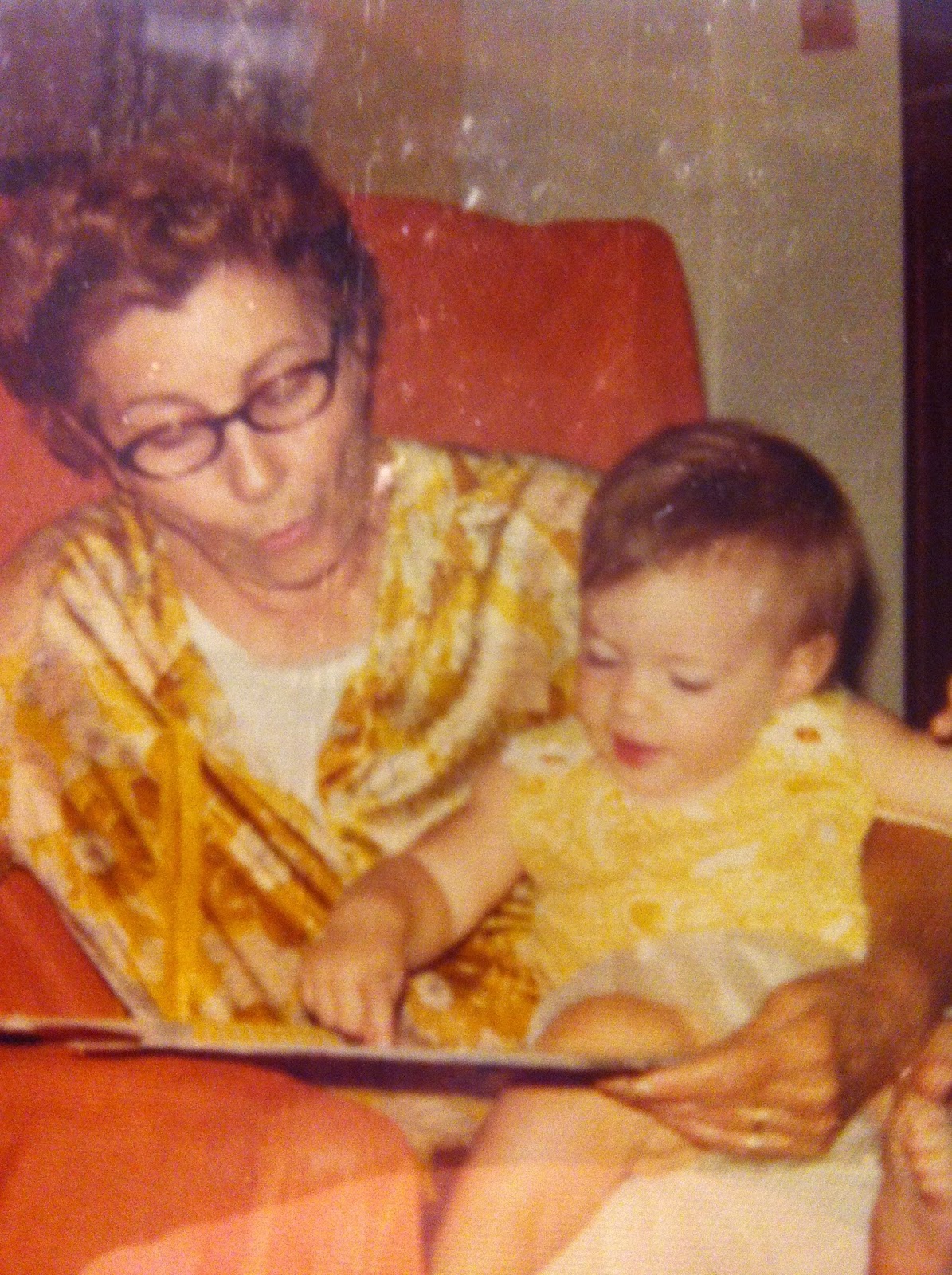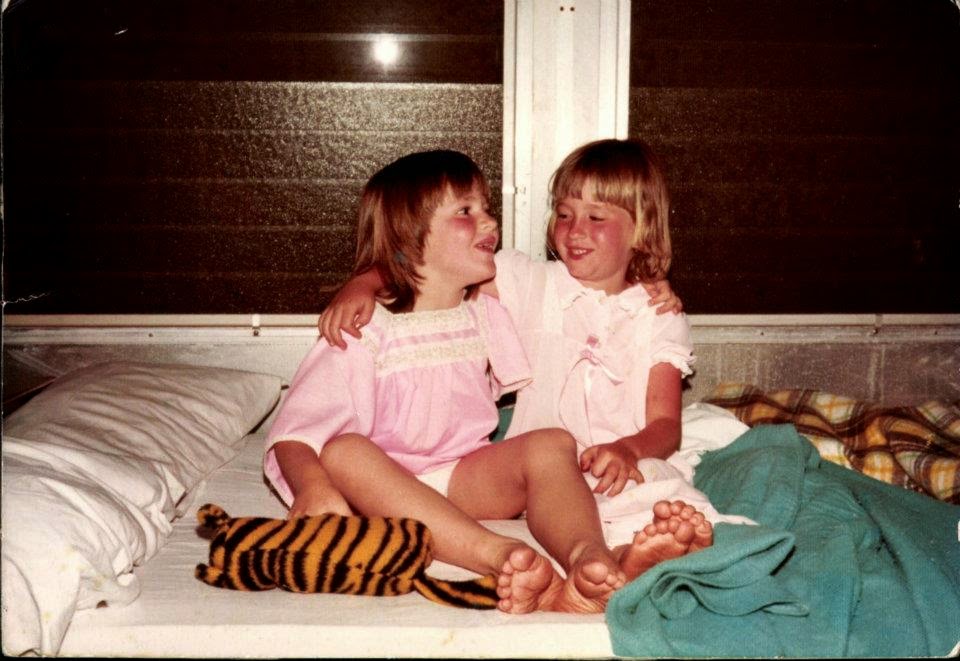January 8, 1996 was a day most people who live in Connecticut will remember as the Blizzard of '96 Ginger. For my husband and I, it is the day our son, Thomas, was born. Around noon, my water broke and my doctor suggested I head in to the hospital since there was a blizzard. Shortly after getting settled into my room, they came in hooked up the monitors and discovered that Thomas was in the breech position. I was immediately prepped for a c-section. When they finally reached Thomas, my doctor yelled, "It's Spina Bifida! Have dad go with him now!" Thomas' Spina Bifida had not been discovered during my prenatal care and the hospital we were in was not medically equipped to handle an infant born with a neural tube defect. The doctor had to finish my surgery, but the room was silent. My first child and my husband had been rushed out of the room and no one was telling me what was happening.
Once I was back in my room, another doctor came in to explain that a team from Yale Children's Hospital was on route to pick up Thomas. They would normally have come by helicopter, but due to the blizzard they were traveling by ambulance. My husband and my parents were with Thomas in the nursery, but due to the c-section I couldn't see him. After several hours, the team arrived. I was able to see Thomas for five minutes before they left. My husband went with him. I had to remain at the hospital for three days due to the c-section. Thomas was an hour away in the children's hospital undergoing surgery to close his back.
It was not the first-time birth experience I had planned for. Nor had we planned for Thomas to have Spina Bifida. It was definitely a life changing experience! Thomas is now eighteen years old. He has never been able to walk - he uses a wheelchair full time. Over the years, people have asked what it is like to have a child with a disability. I found the following poem when Thomas was just a few months old and have shared it countless times:
"Welcome to Holland"
By Emily Perl Kingsley, 1987. All rights reserved.
I am often asked to describe the experience of raising a child with a disability - to try to help people who have not shared that unique experience to understand it, to imagine how it would feel. It's like this......
When you're going to have a baby, it's like planning a fabulous vacation trip - to Italy. You buy a bunch of guide books and make your wonderful plans. The Coliseum. The Michelangelo David. The gondolas in Venice. You may learn some handy phrases in Italian. It's all very exciting.
After months of eager anticipation, the day finally arrives. You pack your bags and off you go. Several hours later, the plane lands. The stewardess comes in and says, "Welcome to Holland."
"Holland?!?" you say. "What do you mean Holland?? I signed up for Italy! I'm supposed to be in Italy. All my life I've dreamed of going to Italy."
But there's been a change in the flight plan. They've landed in Holland and there you must stay.
The important thing is that they haven't taken you to a horrible, disgusting, filthy place, full of pestilence, famine and disease. It's just a different place.
So you must go out and buy new guide books. And you must learn a whole new language. And you will meet a whole new group of people you would never have met.
It's just a different place. It's slower-paced than Italy, less flashy than Italy. But after you've been there for a while and you catch your breath, you look around.... and you begin to notice that Holland has windmills....and Holland has tulips. Holland even has Rembrandts.
But everyone you know is busy coming and going from Italy... and they're all bragging about what a wonderful time they had there. And for the rest of your life, you will say "Yes, that's where I was supposed to go. That's what I had planned."
And the pain of that will never, ever, ever, ever go away...because the loss of that dream is a very very significant loss. But...if you spend your life mourning the fact that you didn't get to Italy, you may never be free to enjoy the very special, the very lovely things ... about Holland.
A few years later, I found this follow up poem:
Celebrating Holland- I'm Home
By Cathy Anthony
(my follow-up to the original ..Welcome to Holland.. by Emily Perl Kingsley)
I have been in Holland for over a decade now. It has become home. I have had time to catch my breath, to settle and adjust, to accept something different than I'd planned.I reflect back on those years of past when I had first landed in Holland. I remember clearly my shock, my fear, my anger, the pain and uncertainty. In those first few years, I tried to get back to Italy as planned, but Holland was where I was to stay. Today, I can say how far I have come on this unexpected journey. I have learned so much more. But, this too has been a journey of time.
I worked hard. I bought new guidebooks. I learned a new language and I slowly found my way around this new land. I have met others whose plans had changed like mine, and who could share my experience. We supported one another and some have become very special friends.
Some of these fellow travelers had been in Holland longer than I and were seasoned guides, assisting me along the way. Many have encouraged me. Many have taught me to open my eyes to the wonder and gifts to behold in this new land. I have discovered a community of caring. Holland wasn't so bad.
I think that Holland is used to wayward travelers like me and grew to become a land of hospitality, reaching out to welcome, to assist and to support newcomers like me in this new land. Over the years, I've wondered what life would have been like if I'd landed in Italy as planned. Would life have been easier? Would it have been as rewarding? Would I have learned some of the important lessons I hold today?
Sure, this journey has been more challenging and at times I would (and still do) stomp my feet and cry out in frustration and protest. And, yes, Holland is slower paced than Italy and less flashy than Italy, but this too has been an unexpected gift. I have learned to slow down in ways too and look closer at things, with a new appreciation for the remarkable beauty of Holland with its tulips, windmills and Rembrandts.
I have come to love Holland and call it Home.
I have become a world traveler and discovered that it doesn't matter where you land. What's more important is what you make of your journey and how you see and enjoy the very special, the very lovely, things that Holland, or any land, has to offer.
Yes, over a decade ago I landed in a place I hadn't planned. Yet I am thankful, for this destination has been richer than I could have imagined!
Even though being separated from Thomas for the first three days of his life was painful, I am incredibly grateful that we lived close to a hospital that was medically equipped to care for Thomas. I recently read "Anifa's Story" (http://www.cdc.gov/features/folicacidstory/) about a baby boy born with Spina Bifida in Nigeria. The village that he was born in has no medical facility and he had to wait nine months before his initial back closure surgery could take place. Here in the United States, the initial back closure is done within the first 24 hours of life to reduce and further spinal cord damage and reduce the chance for infection. I also found these amazing photos of what it is like to give birth in a medical facility in Africa on this website: www.mariekevandervelden.com/giving-birth/
















